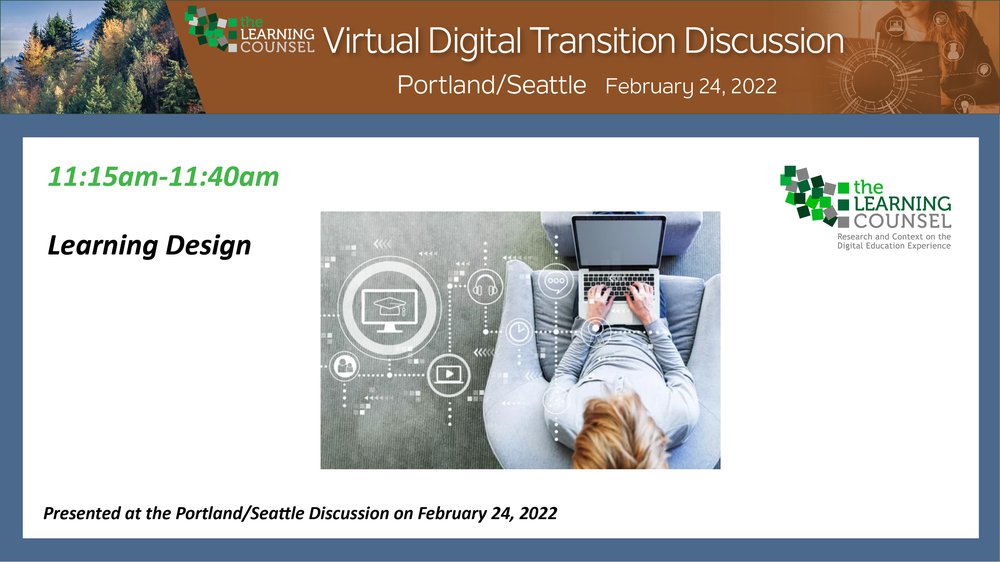Perhaps one of the more complicated discussion subjects is Learning Design. In this workshop, Chris McMurray, Vice President for EduJedi Leadership at the Learning Counsel, helps sort out the structure of what we need to know. According to McMurray, “As someone who has done all the jobs and been at the helm at teaching and learning and yet, this comes down to ‘I'm about to dump the Legos out on the floor. And I will ask people to build something with some new blocks, and I will need to help them, to learn what those new blocks are and how they act, and how to connect them together.
“I need to have a plan for that. I need to have a, a PD plan that is relevant to our current situation and also doable, right? Because we have to think of accessing learning differently, not only for our kids, but for our adults.”
“You have to be operating within a scale of complexity and sophistication within your learning objects. Otherwise, your learning design is going to be impacted and that's going to impact teacher time. And if the whole thing is about maximizing humans and allowing machines to do some of the things that we don't really need to do, then understanding what those Lego blocks are on a scale of complexity becomes really, really important.
“It's very important that we know what a digital document is and why that's the sort of the lowest level knuckle dragging level of a digital curriculum object or a learning object. And then, how a courseware object can help create personalized pathways and allow you to address things like time, pace and place in creation of an experience.”
LeiLani Cauthen, CEO of the Learning Counsel added, “I think the real thing here is that there are not enough people in administration that have actually been in software, in some of this really glorious stuff. Right? Their frame of reference is not there. They don't understand software and what it can do. And I think that's job one. I really do. I don't care who you are as administrator or leader at any level, you need to get in some software, you need to experience it yourself. It's a different world and we entered that world when we entered the pandemic and we don't really fully know it yet administratively, how much software will change the game. It is majestic and it is now an expectation.”
Edward Murray, Superintendent of Lopez Island School District said, “I've been a proponent of this for a long time, but I'm a new superintendent here in Washington state this year. And, so I'm starting over again with my staff and everyone here, but I still see this as the direction that we need to go. I've initiated a strategic planning process as a stimulus for moving us in this direction. We're a very small school district, just 240 students in a K12 school district. So, I think this is an ideal process for small school districts like mine because of the diversity of students at different levels and limited staffing options and everything. That's why I'm here, to share in this and learn as much as I can to make sure I'm doing the right things in my job.”
This is really a must see, must do workshop. The use of software may be one of the defining skills in American education over the next 25 years, and you don’t want to be on the outside looking in. Maximize learning and maximize the humanity of your teachers and staff. This is how you get it done.











